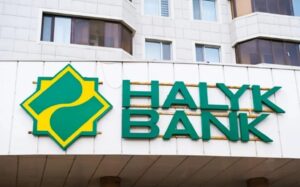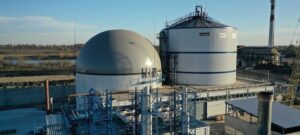
Fixygen.ua – Ukraine remains one of the world’s most crypto-active nations — both in terms of adoption and innovation. Despite the ongoing war and economic challenges, the country has emerged as a regional leader in digital assets, combining high grassroots adoption with an increasingly structured regulatory framework.
Ukraine’s place in the global crypto ecosystem
According to the 2024 Chainalysis Global Crypto Adoption Index, Ukraine ranks 4th globally, behind India, Nigeria, and Vietnam — and ahead of most European and G7 countries. Over 6.5 million Ukrainians (around 15–17% of the adult population) are estimated to hold or use cryptocurrency.
Ukraine also consistently ranks among the top 10 countries by peer-to-peer crypto transaction volume, reflecting its highly digital-savvy population and widespread trust in blockchain-based tools.
Even before 2022, Ukraine was recognized by the Global Crypto Adoption Report as one of the fastest-growing crypto economies in Eastern Europe. Today, the war has only accelerated this transformation — digital currencies have become part of both humanitarian logistics and cross-border business operations.
Adoption and use cases
Remittances & payments: Cryptocurrencies serve as an alternative channel for remittances, reducing transfer costs and bypassing traditional banking restrictions.
Savings and investment: Amid inflation and banking risks, crypto assets are used as a store of value and a hedge against currency instability.
Charitable donations: Since 2022, Ukraine has received more than $250 million in crypto donations, becoming one of the first countries to officially accept digital assets for defense and humanitarian support.
Freelance economy: Ukrainian IT specialists and digital freelancers frequently use stablecoins (USDT, USDC) for cross-border settlements.
Regulatory framework and licensing
Ukraine is one of the first countries in Eastern Europe to create a comprehensive legal framework for the crypto industry.
The Law “On Virtual Assets” (adopted in 2022, updated in 2024) defines digital assets as property and introduces licensing for exchanges and custodial wallets.
In 2025, the National Bank of Ukraine (NBU) and the National Securities and Stock Market Commission (NSSMC) began preparing secondary regulations aligned with the EU’s MiCA (Markets in Crypto-Assets Regulation), paving the way for harmonization with European standards.
The Ukrainian Parliament is also considering taxation amendments that would introduce a 5% income tax rate for crypto-related profits for individuals and 10% for businesses, with simplified reporting rules.
Regulators emphasize that Ukraine aims to become “crypto-compliant, not crypto-restrictive,” ensuring transparency while supporting innovation and investment inflows.
Institutional and infrastructure developments
Ukraine has rapidly built a local crypto infrastructure ecosystem:
Over 25 licensed exchanges and brokers operate domestically or under partnership agreements with EU-registered entities.
Kyiv, Lviv, and Dnipro are emerging as regional blockchain hubs, hosting startups focused on Web3, DeFi, tokenization, and AI-integrated financial products.
The Ministry of Digital Transformation continues to cooperate with Binance, Kuna, and WhiteBIT on blockchain policy and public-sector digitalization.
In parallel, the National Bank of Ukraine is developing its own digital hryvnia (e-hryvnia) pilot with support from Stellar Development Foundation, aiming to test CBDC payments by 2026.
Trends and challenges
Rising institutionalization: Ukrainian crypto companies are shifting from purely retail models to regulated brokerage and fintech structures.
DeFi and tokenized assets: Local developers increasingly launch Web3 tools for global markets — particularly in DeFi, GameFi, and real-world asset tokenization.
Security & AML compliance: Integration with FATF standards remains a challenge, though Ukrainian regulators actively cooperate with the EU to strengthen anti-money laundering mechanisms.
Brain drain vs. global expansion: Thousands of Ukrainian blockchain professionals have relocated to the EU, Poland, and the Baltics, yet they continue to operate Ukrainian-origin projects and bring foreign investment into the ecosystem.
As of late 2025, Ukraine stands among the top 5 global leaders in crypto adoption, with a vibrant domestic ecosystem and growing regulatory maturity.
The ongoing implementation of EU-aligned standards, along with a high degree of digitalization and public acceptance, could make Ukraine a European hub for blockchain innovation and virtual asset regulation within the next two years.

On June 10, 2025, during a massive shelling of Kyiv, the business center building was damaged by debris from an enemy Shahed-type UAV.
The facade, walls, windows, interior partitions, ceiling, floor, and doors were significantly damaged. Engineering and communication systems were also affected: ventilation, heating, power supply, lighting, fire extinguishing, as well as the roof, interior decoration, furniture, and office equipment.
The building was insured against military risks under a co-insurance agreement between three companies: ARSENAL INSURANCE, UNIQA, and TAS. The insurance coverage included the building with all premises, finishes, glass elements, and office equipment. According to the results of an expert assessment, the amount of insurance compensation amounted to more than UAH 12 million. The amount of the payment was determined based on the cost of restoration work, excluding depreciation.
On September 22, 2025, ARSENAL INSURANCE received the last necessary documents, and on September 26, it made its share of the payment — UAH 4,112,237. Thus, only four days passed from the moment the documents were collected to the actual transfer of funds to the client.
“Cases involving military risks are a special category of settlements that require maximum speed and objectivity. Our task is to provide the client with financial support for the rapid restoration of business processes, even in such extraordinary circumstances,” said ARSENAL INSURANCE.
ARSENAL INSURANCE expresses its gratitude to its co-insurance partners, UNIQA and TAS, for their constructive cooperation and effective interaction in the process of settling this complex insurance case.
At the same time, during the settlement process, on August 28, 2025, the same business center was damaged by shelling for the second time. The blast wave and debris again caused damage to the building. The settlement of the second insurance case is currently underway, for which a payment will also be made.

Halyk Bank, a national bank of Kazakhstan, has announced the acquisition of a 49% stake in Click, a leading Uzbek fintech company.
The agreement provides for mutual participation of the parties: Halyk Bank will invest USD 176.4 million to acquire a stake in Click, and Click’s shareholders, in turn, will acquire 49% of Tenge Bank, Halyk Bank’s subsidiary in Uzbekistan, for USD 60.76 million.
The cooperation is aimed at strengthening the positions of both companies in the dynamic digital finance market of Central Asia and developing innovative banking and payment services in the region.
Click is the largest fintech platform in Uzbekistan, serving more than 20 million users and is a recognized leader in digital payments and online financial solutions.

From general “why it’s important” to specific tools and tips on “what to do and how to do it”
IT is not just codes, servers, and a coffee machine that lives better than most people. It’s a whole world where language is the key to understanding, career growth, and the feeling that you’re “on the same wavelength” as all those who create the future. And if you don’t speak English about code, architecture, or tusks yet, it’s time to start.
This article is for those who are already in the tech world or are just preparing to enter it, but want to not just “know English” but think like a real IT professional.
When you write code, English is already all around you. It’s in functions, documentation, variables, errors, and commits. But knowing the words doesn’t mean you can live with them.
Spoken English in IT is the ability to think in terms, not translate, to quickly describe a problem, explain a solution, and defend your idea to a team or client.
The good news is that this is not a talent. It is a skill that can be trained. If you have any doubts about your level, you can take an English test to find out your current level. And read on.
Learning technical English is like building a system: you need a structure.
Development and algorithms: algorithm, recursion, edge case, scalability.
Frontend / Backend: framework, endpoint, API, middleware.
DevOps / Cloud: CI/CD, container, Kubernetes, load balancing.
Data & AI: dataset, overfitting, model validation.
Security: authentication, encryption, vulnerability.
Product and management: backlog, sprint, MVP, stakeholder.
Do not memorize everything. It is better to choose one topic that is close to you now and “speak” it – write code, explain, discuss tasks, even think in it. Words should live in context, not in a list.
Memory is not a library, but a training ground. The more often you “pull” a word out of your memory in a real context, the deeper it gets fixed.
So instead of rewriting dictionaries:
● Read real issues, READMEs, pull requests.
Write short answers in English, even if they are comments on the code.
● Explain your decisions with your voice – record yourself, listen, improve.
Return to the same words after a few days – do not re-read, but “play” from memory.
This is the same principle that pilots and doctors use to train their memory: repeated repetition with real tasks, not dry terms.
The best way to prepare for an English interview is not to cram answers, but to act out a real scene. A mock interview is a simulated interview that practices everything: technical explanations, body language, reactions, pace, and clarity.
In the classic version, a mock interview has three parts:
Position: Backend Developer
Duration: 60 minutes
An example of an answer (in English):
“Last year, our payment service failed during Black Friday.
I rolled back the deployment, opened a postmortem channel, coordinated with the DB team, and restored the service in 18 minutes.
Afterward, we automated rollback to prevent similar issues.”
Answers like this are gold. They are short, structured, and sound natural. Rehearse them out loud. Don’t translate verbatim – find your voice in English.
1. Algorithmic explanations:
Start with “My approach is…”, continue with “The complexity is…”, and end with “An edge case might be…”.
2. System design:
Practice the phrases “We can scale by…”, “A bottleneck could be…”.
3. Soft skills:
Learn to describe your experience: “I faced a challenge when…”, “What I learned was…”.
4. Feedback culture:
Practice politeness during code review: “I suggest…”, “Consider refactoring this part…”, “Maybe we can simplify it by…”.
These are not just words – they are the code of your communication.
Treat English like a sport. Work on your weaknesses: pronunciation, speed of response, terminology, fear of mistakes.
When you hear a word you don’t know, don’t hesitate to pronounce it incorrectly. An imperfect sound is better than silence.
Make your own mini-plan for two weeks:
● 3 mock interviews (one technical, one systemic, one behavioral).
20 minutes of flashcards every day – repeat the terms.
One short PR review in English.
One technical text to retell in your own words.
After two weeks, you will not recognize how much easier it is to think in English.
latency – the delay between request and response
throughput – how many requests the system processes per second
idempotent – an operation that can be performed several times without changing the result
rollback – return to the previous stable version
hotfix – an urgent fix in production
● scalability – the ability of a system to withstand an increase in load
throttling – limiting the number of requests
regression – a bug that brings back an old problem
pipeline – an automated build and deploy sequence
bottleneck – a bottleneck that slows down the system
Learn these ten words and you will sound like a professional.
English for IT is not about grammar, it’s about thinking. You don’t learn to speak “correctly,” you learn to speak confidently, quickly, and clearly.
Mock-interviews, vocabulary practice, and real texts instead of “textbook water” are the three pillars of effective learning.
And most importantly, don’t treat English like a subject. It is your tool, your weapon and your currency in the world of technology.
Prepared by ENGLISH.KH.UA

In September 2025, YUM Liquid Gas LLC exported Ukrainian-produced liquefied biomethane (bio-LNG) to Germany by tanker trucks for the first time, according to industry analytical agency ExPro Daily Gas.
According to the agency’s estimates, the company exported almost 60 tons of liquefied biomethane in September-October. The buyer was Cyprus-based Preture Liquid Gas. According to YouControl, it is the founder of YUM Biogas Company. Therefore, both companies belong to the same group of companies.
YUM Liquid Gas LLC produces biomethane from biogas at its own Yuzhefo-Mykolaiv Biogas Plant (Vinnytsia region). Biogas is produced from sugar beet pulp and broiler chicken manure.
Thus, YUM Liquid Gas has become the second Ukrainian company to export bio-LNG and the fourth company to export biomethane from Ukraine.
As reported, Oril Leader, part of the MHP agricultural holding, also exports bio-LNG to Germany, having supplied almost 2,800 tons since May 2025.
On February 7, 2025, VITAGRO exported biomethane from Ukraine for the first time. On February 11, MHP joined it, and in June, Gals Agro made its first export of gaseous biomethane.
According to information from the Ukrainian Gas Transmission System Operator, as of mid-2025, there were four biomethane plants operating in Ukraine with a capacity of 41 million cubic meters of biomethane per year, three of which are already commercially supplying biomethane to the gas transmission system. By the end of 2025, biomethane producers plan to commission additional biomethane plants with a capacity of up to 70 million cubic meters of biomethane per year and bring the total capacity to 111 million cubic meters per year.